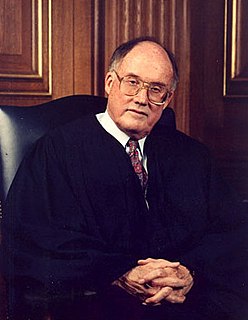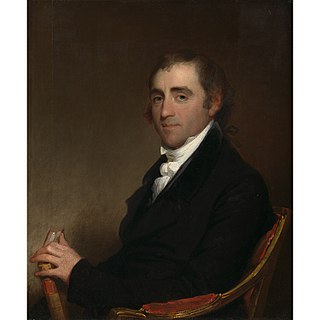A Quote by Doug Bandow
The Constitution's framers intended to restrict central authority to the few areas that could not be handled by states. The drafters would be horrified at how the present court misapplies what they designed.
Related Quotes
I have very deep concern about the legacy of the Rehnquist court and its efforts to restrict congressional authority to enact legislation by adopting a very narrow view of several provisions of the Constitution, including the commerce clause and the 14th Amendment. This trend, I believe, if continued, would restrict and could even prevent the Congress from addressing major environmental and social issues of the future.
Until the 1930s, the Constitution served as a major constraint on federal economic interventionism. The government's powers were understood to be just as the framers intended: few and explicitly enumerated in our founding document and its amendments. Search the Constitution as long as you like, and you will find no specific authority conveyed for the government to spend money on global-warming research, urban mass transit, food stamps, unemployment insurance, Medicaid, or countless other items in the stimulus package and, even without it, in the regular federal budget.
The Constitution makes very clear what the obligation of the United States Senate is and what the obligation of the president of the United States is. To allow a Supreme Court position to remain vacant for well over a year cuts against what I think the intentions of the framers are and what the traditions of the Senate and the executive are.
It is impossible to build sound constitutional doctrine upon a mistaken understanding of Constitutional history... The establishment clause has been expressly freighted with Jefferson's misleading metaphor for nearly forty years... There is simply no historical foundation for the proposition that the framers intended to build a wall of separation... The recent court decisions are in no way based on either the language or intent of the framers.
Americans revere both the Constitution and an independent Court that applies the document's provisions. The Court has done many excellent things in our history, and few people are willing to see its power broken. The difficulty with all proposals to respond to the Court when it behaves unconstitutionally is that they would create a power to destroy the Court's essential work as well.
Constitutions are violated, and it would be absurd to expect the federal government to enforce the Constitution against itself. If the very federal judges the Constitution was partly intended to restrain were the ones exclusively charged with enforcing it, then "America possesses only the effigy of a Constitution." The states, the very constituents of the Union, had to do the enforcing.
The Constitution does not protect the sovereignty of States for the benefit of the States or state governments as abstract political entities, or even for the benefit of the public officials governing the States. To the contrary, the Constitution divides authority between federal and state governments for the protection of individuals.
[The Massachusetts constitution] resembles the federal Constitution of 1787 more closely than any of the other revolutionary state constitutions. It was also drawn up by a special convention, and it provided for popular ratification - practices that were followed by the drafters of the federal Constitution of 1787 and subsequent state constitution-makers.






































